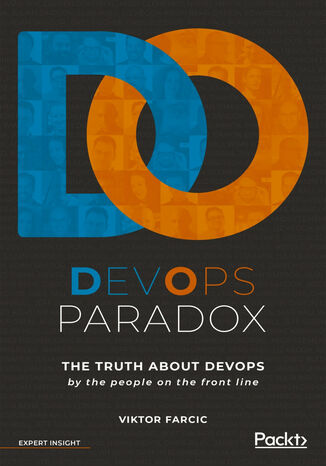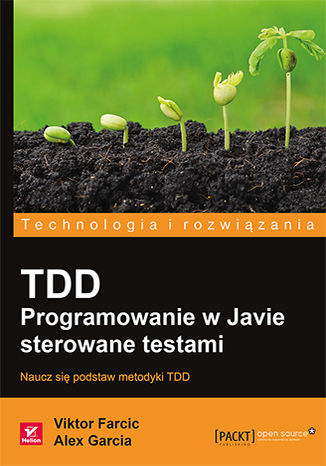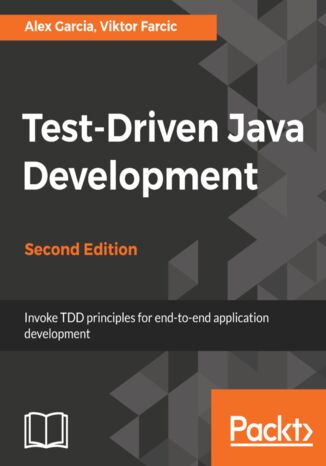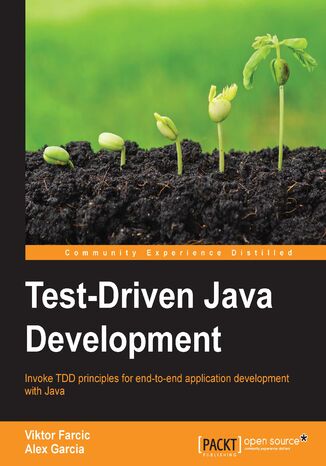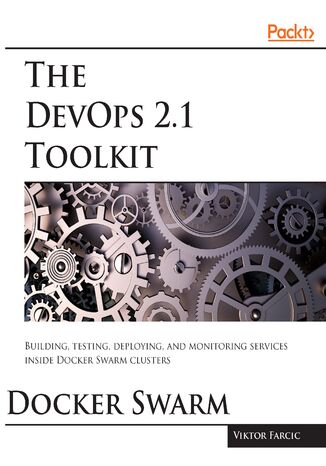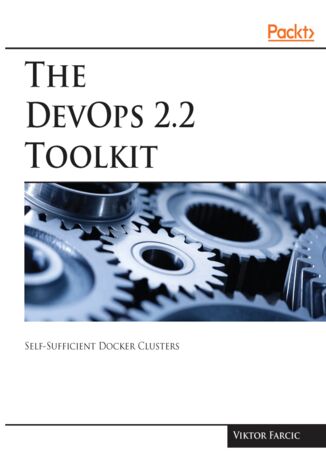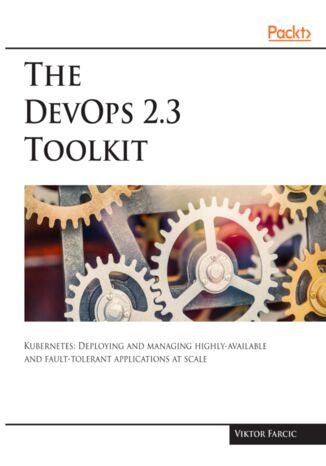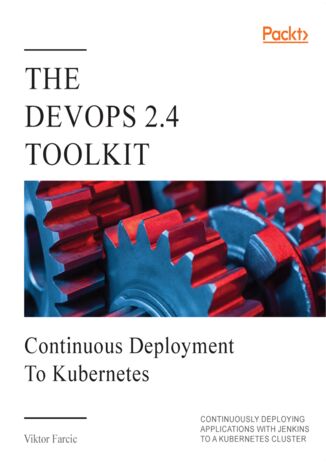Категорії
-
- Біткойн
- Ділова жінка
- Коучинг
- Контроль
- Електронний бізнес
- Економіка
- Фінанси
- Фондова біржа та інвестиції
- Особисті компетенції
- Комп'ютер в офісі
- Комунікація та переговори
- Малий бізнес
- Маркетинг
- Мотивація
- Мультимедійне навчання
- Нерухомість
- Переконання та НЛП
- Податки
- Соціальна політика
- Порадники
- Презентації
- Лідерство
- Зв'язки з громадськістю
- Звіти, аналізи
- Секрет
- Соціальні засоби комунікації
- Продаж
- Стартап
- Ваша кар'єра
- Управління
- Управління проектами
- Людські ресурси (HR)
-
- Architektura i wnętrza
- Безпека життєдіяльності
- Biznes i Ekonomia
- Будинок та сад
- Електронний бізнес
- Ekonomia i finanse
- Езотерика
- Фінанси
- Особисті фінанси
- Бізнес
- Фотографія
- Інформатика
- Відділ кадрів та оплата праці
- Для жінок
- Комп'ютери, Excel
- Бухгалтерія
- Культура та література
- Наукові та академічні
- Охорона навколишнього середовища
- Впливові
- Освіта
- Податки
- Подорожі
- Психологія
- Релігія
- Сільське господарство
- Ринок книг і преси
- Транспорт та спедиція
- Здоров'я та краса
-
- Офісні застосунки
- Бази даних
- Біоінформатика
- Бізнес ІТ
- CAD/CAM
- Digital Lifestyle
- DTP
- Електроніка
- Цифрова фотографія
- Комп'ютерна графіка
- Ігри
- Хакування
- Hardware
- IT w ekonomii
- Наукові пакети
- Шкільні підручники
- Основи комп'ютера
- Програмування
- Мобільне програмування
- Інтернет-сервери
- Комп'ютерні мережі
- Стартап
- Операційні системи
- Штучний інтелект
- Технологія для дітей
- Вебмайстерність
-
- Антології
- Балада
- Біографії та автобіографії
- Для дорослих
- Драми
- Журнали, щоденники, листи
- Епос, епопея
- Нарис
- Наукова фантастика та фантастика
- Фельєтони
- Художня література
- Гумор, сатира
- Інше
- Класичний
- Кримінальний роман
- Нехудожня література
- Художня література
- Mity i legendy
- Лауреати Нобелівської премії
- Новели
- Побутовий роман
- Okultyzm i magia
- Оповідання
- Спогади
- Подорожі
- Оповідна поезія
- Поезія
- Політика
- Науково-популярна
- Роман
- Історичний роман
- Проза
- Пригодницька
- Журналістика
- Роман-репортаж
- Romans i literatura obyczajowa
- Сенсація
- Трилер, жах
- Інтерв'ю та спогади
-
- Археологія
- Bibliotekoznawstwo
- Кінознавство / Теорія кіно
- Філологія
- Польська філологія
- Філософія
- Finanse i bankowość
- Географія
- Економіка
- Торгівля. Світова економіка
- Історія та археологія
- Історія мистецтва і архітектури
- Культурологія
- Мовознавство
- літературні студії
- Логістика
- Математика
- Ліки
- Гуманітарні науки
- Педагогіка
- Навчальні засоби
- Науково-популярна
- Інше
- Психологія
- Соціологія
- Театральні студії
- Богослов’я
- Економічні теорії та науки
- Transport i spedycja
- Фізичне виховання
- Zarządzanie i marketing
-
- Безпека життєдіяльності
- Історія
- Дорожній кодекс. Водійські права
- Юридичні науки
- Охорона здоров'я
- Загальне, компендіум
- Академічні підручники
- Інше
- Закон про будівництво і житло
- Цивільне право
- Фінансове право
- Господарське право
- Господарське та комерційне право
- Кримінальний закон
- Кримінальне право. Кримінальні злочини. Кримінологія
- Міжнародне право
- Міжнародне та іноземне право
- Закон про охорону здоров'я
- Закон про освіту
- Податкове право
- Трудове право та законодавство про соціальне забезпечення
- Громадське, конституційне та адміністративне право
- Кодекс про шлюб і сім'ю
- Аграрне право
- Соціальне право, трудове право
- Законодавство Євросоюзу
- Промисловість
- Сільське господарство та захист навколишнього середовища
- Словники та енциклопедії
- Державні закупівлі
- Управління
-
- Африка
- Альбоми
- Південна Америка
- Центральна та Північна Америка
- Австралія, Нова Зеландія, Океанія
- Австрія
- Азії
- Балкани
- Близький Схід
- Болгарія
- Китай
- Хорватія
- Чеська Республіка
- Данія
- Єгипет
- Естонія
- Європа
- Франція
- Гори
- Греція
- Іспанія
- Нідерланди
- Ісландія
- Литва
- Латвія
- Mapy, Plany miast, Atlasy
- Мініпутівники
- Німеччина
- Норвегія
- Активні подорожі
- Польща
- Португалія
- Інше
- Przewodniki po hotelach i restauracjach
- Росія
- Румунія
- Словаччина
- Словенія
- Швейцарія
- Швеція
- Світ
- Туреччина
- Україна
- Угорщина
- Велика Британія
- Італія
-
- Філософія життя
- Kompetencje psychospołeczne
- Міжособистісне спілкування
- Mindfulness
- Загальне
- Переконання та НЛП
- Академічна психологія
- Психологія душі та розуму
- Психологія праці
- Relacje i związki
- Батьківство та дитяча психологія
- Вирішення проблем
- Інтелектуальний розвиток
- Секрет
- Сексуальність
- Спокушання
- Зовнішній вигляд та імідж
- Філософія життя
-
- Біткойн
- Ділова жінка
- Коучинг
- Контроль
- Електронний бізнес
- Економіка
- Фінанси
- Фондова біржа та інвестиції
- Особисті компетенції
- Комунікація та переговори
- Малий бізнес
- Маркетинг
- Мотивація
- Нерухомість
- Переконання та НЛП
- Податки
- Соціальна політика
- Порадники
- Презентації
- Лідерство
- Зв'язки з громадськістю
- Секрет
- Соціальні засоби комунікації
- Продаж
- Стартап
- Ваша кар'єра
- Управління
- Управління проектами
- Людські ресурси (HR)
-
- Антології
- Балада
- Біографії та автобіографії
- Для дорослих
- Драми
- Журнали, щоденники, листи
- Епос, епопея
- Нарис
- Наукова фантастика та фантастика
- Фельєтони
- Художня література
- Гумор, сатира
- Інше
- Класичний
- Кримінальний роман
- Нехудожня література
- Художня література
- Mity i legendy
- Лауреати Нобелівської премії
- Новели
- Побутовий роман
- Okultyzm i magia
- Оповідання
- Спогади
- Подорожі
- Поезія
- Політика
- Науково-популярна
- Роман
- Історичний роман
- Проза
- Пригодницька
- Журналістика
- Роман-репортаж
- Romans i literatura obyczajowa
- Сенсація
- Трилер, жах
- Інтерв'ю та спогади
-
- Філософія життя
- Міжособистісне спілкування
- Mindfulness
- Загальне
- Переконання та НЛП
- Академічна психологія
- Психологія душі та розуму
- Психологія праці
- Relacje i związki
- Батьківство та дитяча психологія
- Вирішення проблем
- Інтелектуальний розвиток
- Секрет
- Сексуальність
- Спокушання
- Зовнішній вигляд та імідж
- Філософія життя
DevOps Paradox. The truth about DevOps by the people on the front line
DevOps promises to break down silos, uniting organizations to deliver high quality output in a cross-functional way. In reality it often results in confusion and new silos: pockets of DevOps practitioners fight the status quo, senior decision-makers demand DevOps paint jobs without committing to true change. Even a clear definition of what DevOps is remains elusive.In DevOps Paradox, top DevOps consultants, industry leaders, and founders reveal their own approaches to all aspects of DevOps implementation and operation. Surround yourself with expert DevOps advisors. Viktor Farcic draws on experts from across the industry to discuss how to introduce DevOps to chaotic organizations, align incentives between teams, and make use of the latest tools and techniques.With each expert offering their own opinions on what DevOps is and how to make it work, you will be able to form your own informed view of the importance and value of DevOps as we enter a new decade. If you want to see how real DevOps experts address the challenges and resolve the paradoxes, this book is for you.
TDD. Programowanie w Javie sterowane testami
Programowanie sterowane testami (ang. test-driven development — TDD) nie jest nową metodyką. Jej praktyczne zastosowanie pozwala na rozwiązanie wielu problemów związanych z procesami rozwijania i wdrażania oprogramowania. Mimo ogromnych zalet, programowanie sterowane testami nie jest zbyt popularne wśród programistów. Wynika to z tego, że techniki TDD nie są łatwe do opanowania. Choć teoretyczne podstawy wydają się logiczne i zrozumiałe, nabranie wprawy w stosowaniu TDD wymaga długiej praktyki. Książka, którą trzymasz w ręce, została napisana przez programistów dla programistów. Jej celem jest przekazanie podstaw TDD i omówienie najważniejszych praktyk związanych z tą metodyką, a przede wszystkim — nauczenie praktycznego stosowania TDD w pracy. Autorzy nie ukrywają, że nabranie biegłości w takim programowaniu wymaga sporo wysiłku, jednak korzyści płynące z metodyki TDD są znaczne: skrócenie czasu wprowadzania produktów na rynek, łatwiejsza refaktoryzacja, a także wyższa jakość tworzonych projektów. Z tą książką dogłębnie zrozumiesz metodykę TDD i uzyskasz wystarczającą pewność siebie, by z powodzeniem stosować to podejście w trakcie programowania aplikacji w Javie. Dzięki tej książce: Nauczysz się podstaw metodyki TDD Poznasz potrzebne narzędzia, platformy i środowiska wraz ze szczegółami ich konfiguracji Wykonywasz praktyczne ćwiczenia i stopniowo wdrożysz się w TDD Poznasz proces „czerwone, zielone, refaktoryzacja” Dowiesz się, jak pisać testy jednostkowe wykonywane w izolacji od reszty kodu Dowiesz się, jak tworzyć prosty i łatwy w konserwacji kod, nauczysz się refaktoryzować już istniejący Nauczysz się pracować z atrapami, stosować programowanie sterowane zachowaniami, a także udostępniać połowicznie ukończone funkcje w środowisku produkcyjnym za pomocą przełączników funkcji Programowanie sterowane testami to metodyka dla prawdziwych profesjonalistów!
Test-driven development (TDD) is a development approach that relies on a test-first procedure that emphasizes writing a test before writing the necessary code, and then refactoring the code to optimize it.The value of performing TDD with Java, one of the longest established programming languages, is to improve the productivity of programmers and the maintainability and performance of code, and develop a deeper understanding of the language and how to employ it effectively.Starting with the basics of TDD and understanding why its adoption is beneficial, this book will take you from the first steps of TDD with Java until you are confident enough to embrace the practice in your day-to-day routine.You'll be guided through setting up tools, frameworks, and the environment you need, and we will dive right into hands-on exercises with the goal of mastering one practice, tool, or framework at a time. You'll learn about the Red-Green-Refactor procedure, how to write unit tests, and how to use them as executable documentation.With this book, you'll also discover how to design simple and easily maintainable code, work with mocks, utilize behavior-driven development, refactor old legacy code, and release a half-finished feature to production with feature toggles.You will finish this book with a deep understanding of the test-driven development methodology and the confidence to apply it to application programming with Java.
Viktor Farcic's latest book, The DevOps 2.1 Toolkit: Docker Swarm, takes you deeper into one of the major subjects of his international best seller, The DevOps 2.0 Toolkit, and shows you how to successfully integrate Docker Swarm into your DevOps toolset.Viktor shares with you his expert knowledge in all aspects of building, testing, deploying, and monitoring services inside Docker Swarm clusters. You'll go through all the tools required for running a cluster. You'll travel through the whole process with clusters running locally on a laptop. Once you're confident with that outcome, Viktor shows you how to translate your experience to different hosting providers like AWS, Azure, and DigitalOcean. Viktor has updated his DevOps 2.0 framework in this book to use the latest and greatest features and techniques introduced in Docker. We'll go through many practices and even more tools. While there will be a lot of theory, this is a hands-on book. You won't be able to complete it by reading it on the metro on your way to work. You'll have to read this book while in front of the computer and get your hands dirty.
The DevOps 2.2 Toolkit. Self-Sufficient Docker Clusters
Building on The DevOps 2.0 Toolkit and The DevOps 2.1 Toolkit: Docker Swarm, Viktor Farcic brings his latest exploration of the Docker technology as he records his journey to explore two new programs, self-adaptive and self-healing systems within Docker. The DevOps 2.2 Toolkit: Self-Sufficient Docker Clusters is the latest book in Viktor Farcic’s series that helps you build a full DevOps Toolkit. This book in the series looks at Docker, the tool designed to make it easier in the creation and running of applications using containers. In this latest entry, Viktor combines theory with a hands-on approach to guide you through the process of creating self-adaptive and self-healing systems. Within this book, Viktor will cover a wide-range of emerging topics, including what exactly self-adaptive and self-healing systems are, how to choose a solution for metrics storage and query, the creation of cluster-wide alerts and what a successful self-sufficient system blueprint looks like. Work with Viktor and dive into the creation of self-adaptive and self-healing systems within Docker.
Building on The DevOps 2.0 Toolkit, The DevOps 2.1 Toolkit: Docker Swarm, and The DevOps 2.2 Toolkit: Self-Sufficient Docker Clusters, Viktor Farcic brings his latest exploration of the DevOps Toolkit as he takes you on a journey to explore the features of Kubernetes.The DevOps 2.3 Toolkit: Kubernetes is a book in the series that helps you build a full DevOps Toolkit. This book in the series looks at Kubernetes, the tool designed to, among other roles, make it easier in the creation and deployment of highly available and fault-tolerant applications at scale, with zero downtime.Within this book, Viktor will cover a wide range of emerging topics, including what exactly Kubernetes is, how to use both first and third-party add-ons for projects, and how to get the skills to be able to call yourself a “Kubernetes ninja.” Work with Viktor and dive into the creation and exploration of Kubernetes with a series of hands-on guides.
Building on The DevOps 2.3 Toolkit: Kubernetes, Viktor Farcic brings his latest exploration of the Docker technology as he records his journey to continuously deploying applications with Jenkins into a Kubernetes cluster.The DevOps 2.4 Toolkit: Continuously Deploying Applications with Jenkins to a Kubernetes Cluster is the latest book in Viktor Farcic’s series that helps you build a full DevOps Toolkit. This book guides readers through the process of building, testing, and deploying applications through fully automated pipelines.Within this book, Viktor will cover a wide-range of emerging topics, including an exploration of continuous delivery and deployment in Kubernetes using Jenkins. It also shows readers how to perform continuous integration inside these clusters, and discusses the distribution of Kubernetes applications, as well as installing and setting up Jenkins.Work with Viktor and dive into the creation of self-adaptive and self-healing systems within Docker.

